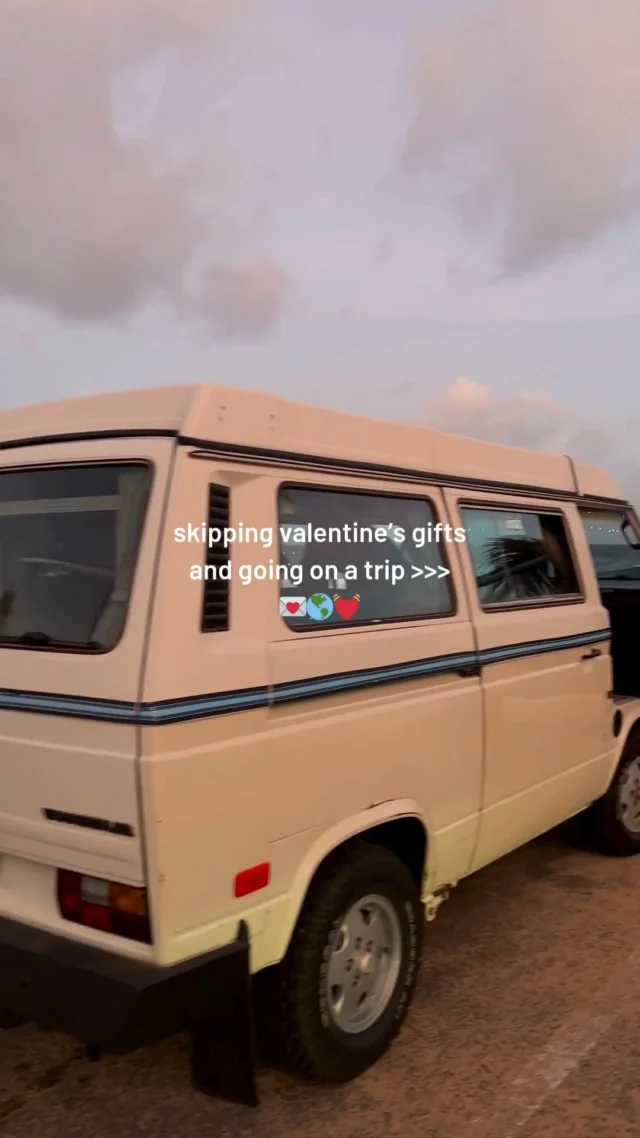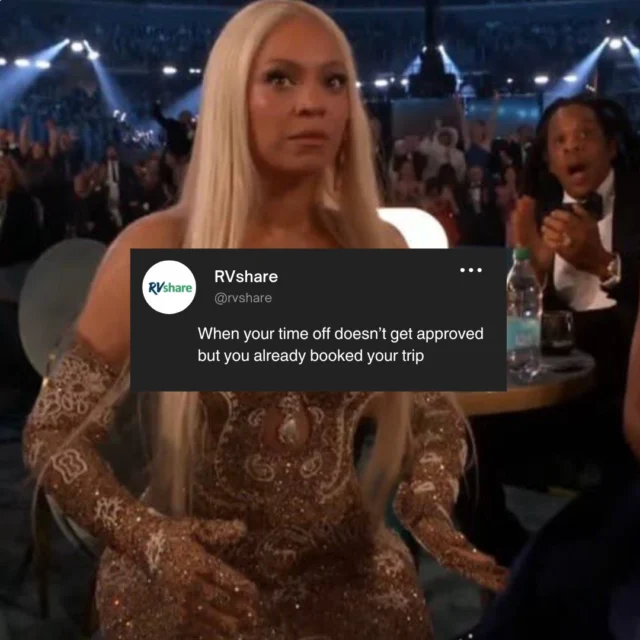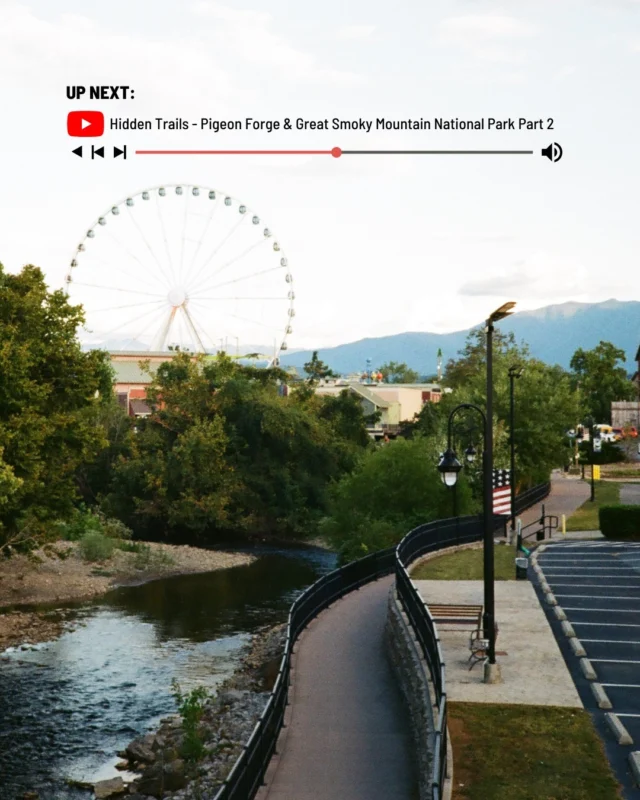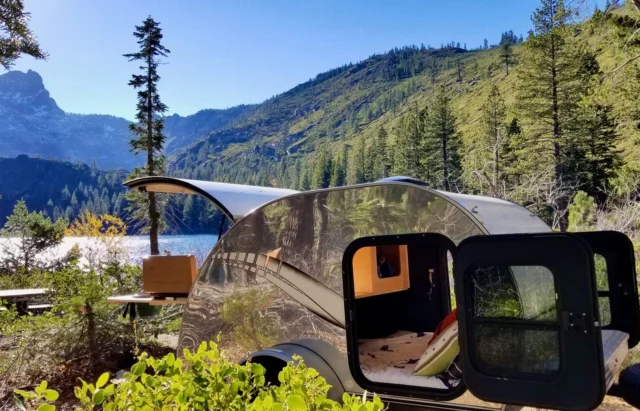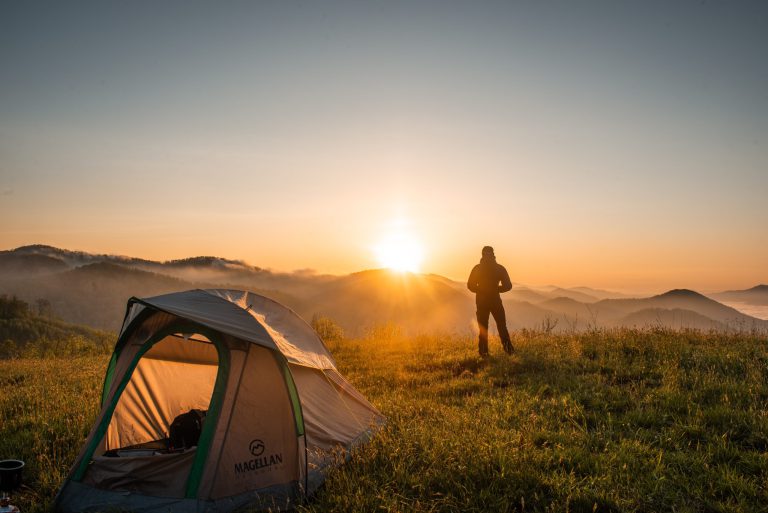
A camping trip is a great time to unplug and unwind without the everyday pressures and stresses of life weighing on you. You get away from it all, and enjoy some peace and quiet in a beautiful, natural setting. And while it’s a lot of fun to go camping with a family or group, there are many reasons you may want to plan a solo camping trip instead.

Solo Camping for Beginners
The benefits of camping alone are numerous, and it’s a great way to spend a few days of vacation. When you camp alone, you can do as you please – you don’t need to plan hikes or outings that other people are interested in when you may not be. If you feel like staying in one spot an extra day, or moving on early…well, you can! You’ll also learn a lot more about how to camp because you’ll be doing everything yourself. You’ll gain confidence because you’ll be relying on yourself to get everything done. You may even find that camping solo is less stressful because you won’t be worrying about whether anyone else is having a good time, or planning outings and meals for anyone but yourself.
7 Solo Camping Tips
While camping by yourself can be a wonderful experience, there are some things you’ll want to do ahead of time to make your trip go smoother.
1.) Do a trial run with others
If you’re new to camping, you probably want to do it a few times with a more experienced camper before heading off into the wild unknown on your own. You’ll want some practice building a fire and learning to set up a tent or motorhome and cooking on a campstove or in your RV kitchen.
How to go camping by yourself
In order to go camping by yourself, you’re going to want to do a little research.
2.) Learn some basic skills
If you’ve never camped before, hopefully you learn these skills when you’re camping with a friend. If not, stores like REI also hold workshops, and there are meetups and other groups you can join to gain some camping skills. Before you go camping, you’ll want to know how to:
- build a campfire
- pitch a tent or set up the shelter you’ll be using
- purify your water (if you’re headed into the backcountry)
- perform basic first aid
- protect yourself and your food from local wildlife like mountain lions, bears, and smaller critters like squirrels
- protect yourself from the weather
- get help in an emergency
3.) Know yourself
It may take a day or two to get really comfortable camping solo…or just to be exhausted enough that you get a good night’s sleep anyway! If you’re someone who wakes up at every tiny noise, you might want to allow more days camping by yourself so that you really enjoy it. On the other hand, if you know you’ll be miserable after two days without showering – don’t torture yourself! Plan a trip you know you’ll enjoy.
If you do get nervous alone in a new place, also make plans ahead of time to calm yourself. Does it help you to recite a mantra, or to pray or meditate? What will you do when you hear the usual sounds of a forest at night?
4.) Pack lightly
If you’re backpacking to your destination, you’ll want to carefully consider what you’re bringing. On the one hand, since you’ll be solo you won’t need as many things. On the other hand, you have to bring everything to set up a camp by yourself. If you’ll be by a water source, a filter or purifying drops will be lighter than packing in enough water for several days. Can you leave your tent and sleeping bag behind and just use a hammock? Are there any other luxury items you can ditch? Obviously, if you’re car camping or bringing a camper or RV, you don’t have to be as careful about packing!

Is it safe to camp by yourself?
It’s only natural to wonder whether it’s safe to camp alone. And while every camping trip – whether it’s a solo trip or not – has an element of risk, there are things you can do to cut down on those risks and keep yourself safe.
5.) Start somewhere familiar
For your first camping trip alone, pick a spot you know – maybe somewhere you’ve camped with others, or somewhere you’ve hiked during the daytime. You’ll already know that you like that spot, and you’ll have an idea of things like whether there’s running water or bathrooms and how far you’ll be traveling to get there. If you do eventually branch out to new sites, have physical maps and a compass and don’t rely on cell service to help you navigate.
6.) Have an emergency contact
Be sure to tell someone about your plans, including where you’re going and when you’ll be back, and stick to those plans or communicate any changes. You’ll want someone to sound the alarm if you don’t arrive home or check in when you say you will. You may also want to consider purchasing or renting a satellite phone or other means of emergency communication if you’re going to be somewhere remote.

Things to do while camping alone
You will have downtime after you’ve set up camp each day, which brings us to our last tip:
7.) Bring something to do
You won’t have people to chat with around a campfire at night. What do you enjoy in your free time that doesn’t rely on electricity? You may want to bring a book, or a deck of cards for solitaire, or an easy-to-pack craft or drawing journal – something to do while you’re unwinding at your campsite.
Camping solo can sound daunting if you haven’t tried it, but the benefits of a few days (or more!) away from the hustle and bustle of life can leave you refreshed and relaxed and it may not be long before you’re planning another trip!


